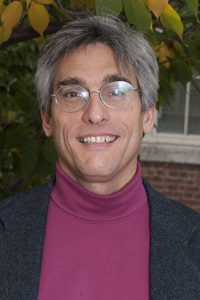
TUSCALOOSA, Ala. — Dr. William FitzPatrick, a professor of philosophy at the University of Rochester, will explore the relations between scientific and philosophical questions about morality in the final lecture of The University of Alabama’s 2015–2016 Philosophy Today series.
His lecture, “Morality and Evolutionary Biology: Why the Science Doesn’t Settle the Philosophical Questions,” will be held today at 7:30 p.m. in room 205 of Smith Hall on the UA campus.
The lecture is free and open to the public.
According to FitzPatrick, the Gideon Webster Burbank Professor of Intellectual and Moral Philosophy at the University of Rochester, many philosophers have used research by evolutionary biologists to conclude that human morality is not a matter of conscientiously understanding or perceiving what is right and wrong. Rather, they argue that people have an evolutionary predisposition in regards to ethics.
“Some philosophers argue that the scientific evidence supports a kind of moral skepticism,” FitzPatrick said. “But I will argue that this philosophical conclusion does not in fact follow from anything science tells us, and, that on the contrary, philosophy reveals potential limits on scientific explanations of our moral beliefs.”
FitzPatrick is a professor of philosophy and undergraduate adviser for the department of philosophy at the University of Rochester. He is also the associate editor for Ethics, a journal of moral, political and legal philosophy.
In addition to his book “Teleology and the Norms of Nature,” FitzPatrick has published dozens of articles and reviews on ethical topics.
Prior to his professorship at the University of Rochester, FitzPatrick taught at UCLA, Yale University and Virginia Tech.
Lectures in the Philosophy Today series are geared toward a general audience and are of interest to those in any profession or academic discipline.
Philosophy Today is sponsored by the UA College of Arts and Sciences’ department of philosophy, a grant from Louis W. Perry and other alumni, and friends of the department.
The College of Arts and Sciences is the University’s largest division and the largest liberal arts college in the state. Students from the College have won numerous national awards including Rhodes Scholarships, Goldwater Scholarships and memberships on the USA Today Academic All American Team.
Contact
Courtney Corbridge, communications specialist, College of Arts and Sciences, 205/348-8539, courtney.a.corbridge@ua.edu
Source
Dr. Torin Alter, professor of philosophy, 205/348-1908, talter@ua.edu